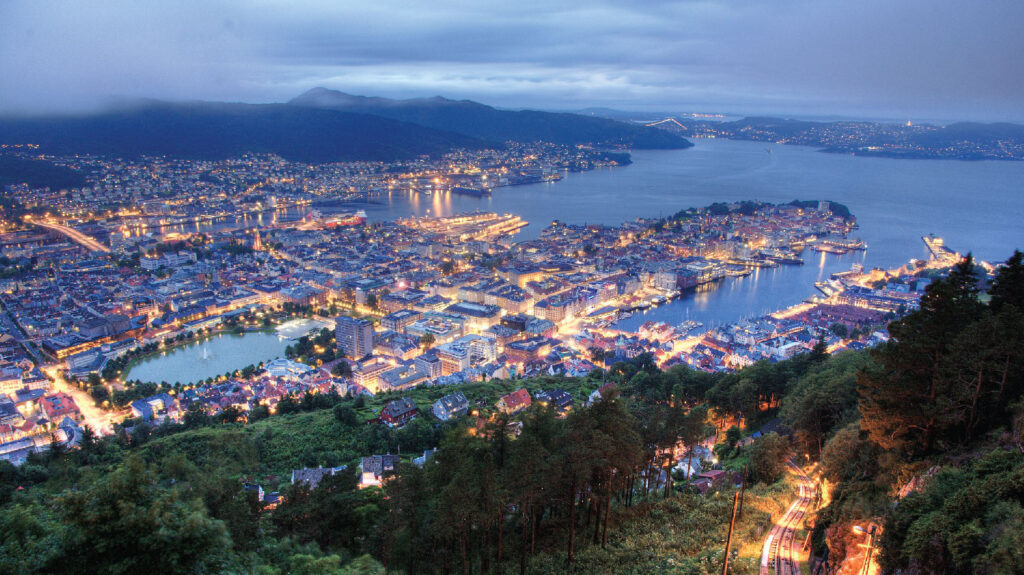
West coast of Norway, fjorded mountainous landscape. V estland has a population of 638,821 (2021) of which 285,900 live in the capital, Bergen, Norway’s second largest city.
Bergen Municipality, Vestland County Council, Centre for Sustainable Business (CSB), Proptech Innovation (smart construction), Visit Bergen (tourism), Statkraft (state run hydro and wind production company), Enosol AS and Solcelle Proffen Norge (solar energy companies).
Vestland’s population is growing rapidly, up 8.1% 2011-2021. 15.5% of Bergen’s population is of immigration background. The region’s official language is Nynorsk, a minority dialect of Norwegian spoken by about 20% of Norway’s population. Many major industries are ocean based, including shipping, fishing, maritime insurance, and logistics for the gas and oil industries based offshore. The region has a temperate ocean dominated climate with high rainfall levels.
High precipitation is predicted to increase further with rising ocean temperatures, with wetter autumns, winter and springs and drier summers presenting increased flood risks (Tsegaw et al. 2020). Increased precipitation and Extreme Weather Events (EWE) in the country mean that water and wastewater systems have a growing vulnerability to water-related risks, which has led to the need for adaptation approaches to be adopted, but also challenges to hydroelectric energy supply in the drier summers.
Norway has a high uptake of EVs. Bergen has introduced a transport strategy aimed at decarbonization, with major investment in light rail and introduction of multiple electric transport options. The policy has been criticised for concentrating benefits on privileged users while providing minimal benefits to vulnerable users (Sareen 2021). Using digital data to enable vulnerable users to access public transport; clean energy and insulated housing are social justice issues that can build greater climate resilience.
Bergen’s ‘smart energy transition’ has encountered substantial political resistance. In 2019 ‘People’s campaign against toll charges’ (FNB) took more than a quarter of the votes in municipal elections (Sareen 2021: 6). The movement feeds off perceptions that policies mostly benefit the well off living in central areas, a contention to some extent supported by research.

